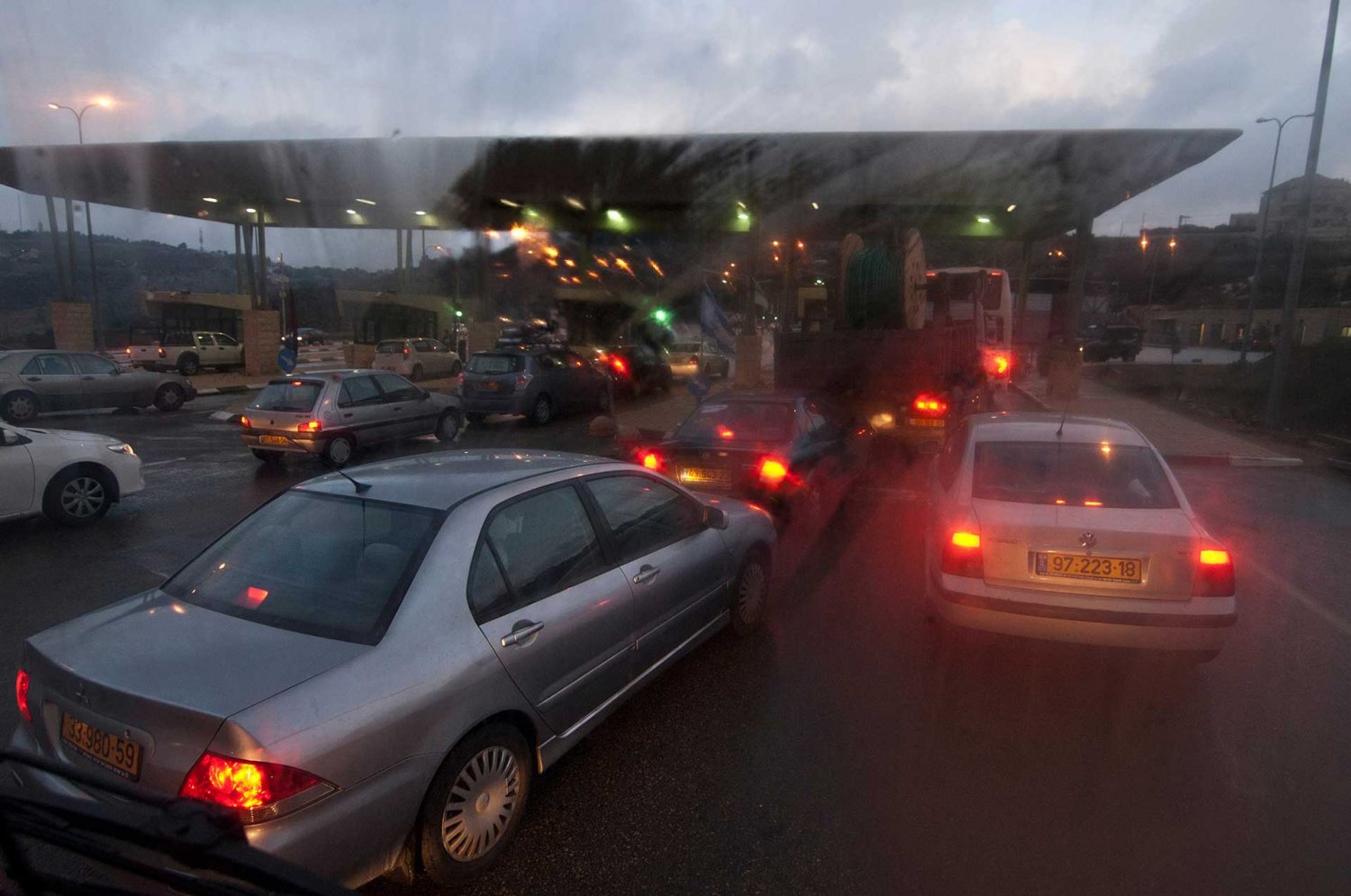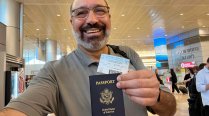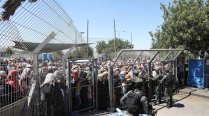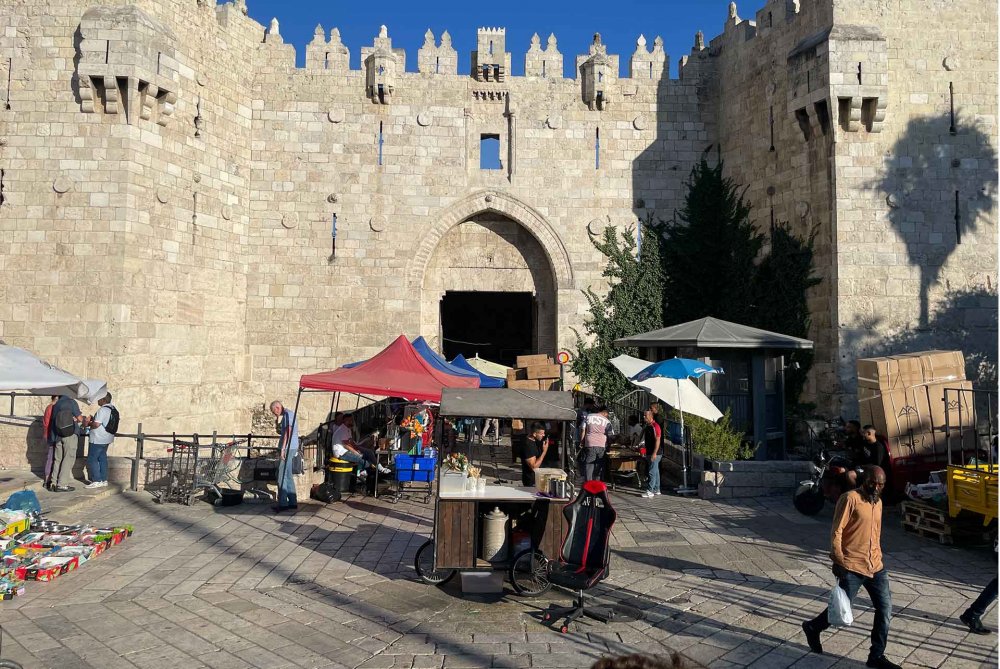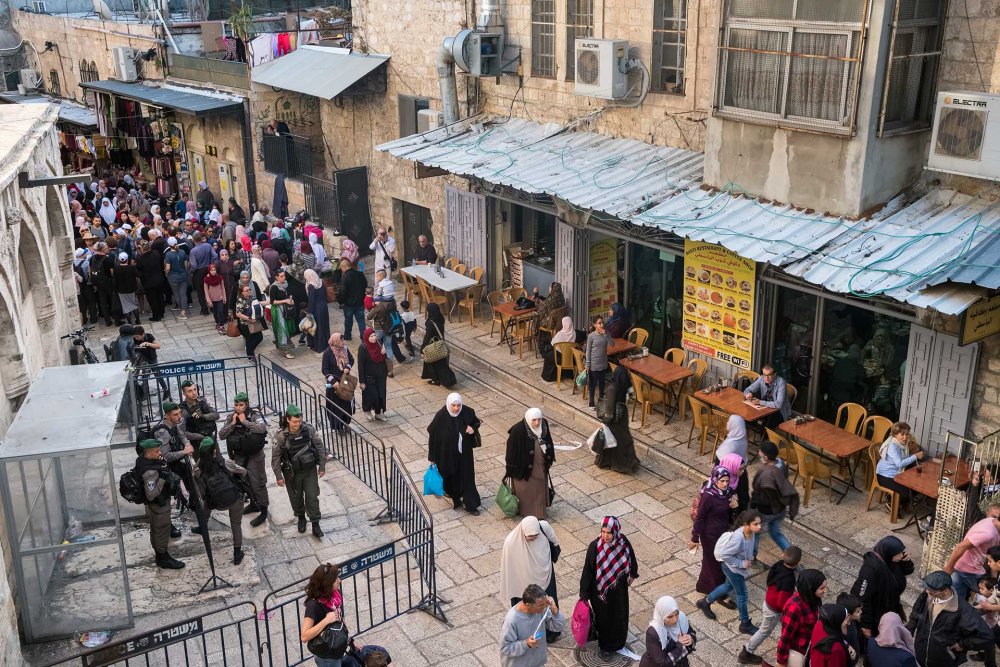I had passed through Jerusalem once before when I was 15 on my way to the American consulate in Tel Aviv. On that day, I was with my parents, and I had a permit limited to daytime hours to renew my passport. It specifically listed the consulate as my destination and that I was not allowed to be elsewhere in Israel.
On this day, however, my friends and I walked to the Ramallah bus station. I had always seen bus 218 (Ramallah—Qalandiya route) arriving and departing but this morning, I got on it. We drove toward the Qalandiya checkpoint, which separates Ramallah from Jerusalem and other points south. Instead of taking a left and driving around Jerusalem as usual, the bus directly approached the checkpoint gate. I was excited, worried, and nervous: excited at the prospect of entering, worried that if I had trouble, the soldiers would stop my friends too, and nervous about the unknown ahead.
We approached the gate and waited for a bit for Israeli soldiers to check our IDs. This was all so unfamiliar to me. For the past week, I had been showing my friends around the West Bank, explaining roads, settlements, and checkpoints. At this moment, I wanted someone to explain things to me.
Three soldiers got on the bus with their massive machine guns. One went all the way to the back and stood there, another stood at the front, and a third was checking IDs. We were sitting toward the back, and I watched as he checked one ID card or passport at a time. I was trying to see what paperwork he was demanding, being careful not to stare at him, but also trying not to look down too much. I avoided looking at my friends because I did not want the soldiers to know we were a group; in case they decided that I did not have the appropriate paperwork, I wanted to make sure they were allowed to pass. I put my bag on the seat next to me, as far away from me as possible and did not touch it. I kept my hands visible on my lap. Was this conscious? I could not tell. As the soldier approached, I saw he was holding one US passport in his hand, juggling it between his phone and his gun. I started to think that I would not pass.
First, he checked my friends’ US passports and returned them; I breathed an internal sigh of relief for them. He turned to me and I handed him my US passport. I never carry my passport as identification in Palestine; it is always my green PA ID that is important (under Israeli law, we are required to carry it everywhere). I waited for him to ask for it. He flipped through the pages and asked for the visa that I would have received upon entry at the airport. I handed him my permit. He looked confused, asked the soldier behind him a question in Hebrew, kept my passport, and continued walking. At this point, I was unsure what was happening: I knew I was not going to stay on the bus, but I did not know if I was going to be denied entry or not. While the situation was unfamiliar, I did not feel scared. I had heard so many Qalandiya crossing stories that I just wanted to know my fate.
A few minutes later, one of the soldiers returned to the bus and called for those of us who had not had our passports returned to get off the bus. I told my friends to stay and that I would text them with updates. I thought back to the arbitrariness of Israeli apartheid. I was, once again, reminded of the vacuous decisions of the occupation regime: nothing is ever truly procedural.
We stood outside with the soldiers for a bit while they went through the pages of our passports. The bus with my friends drove through the checkpoint. Then we were instructed to go to the “pedestrian crossing,” as the US State Department recently referred to the turnstiles and crowded gates of the checkpoint’s footpath.4 I got a flashback to the only other time I had crossed with my parents eight years ago; I remember my younger self incessantly asking my father what to say to the soldier. Apparently even though I was a US citizen, my status as a PA ID holder still mandated that I cross the checkpoint on foot.
We were lucky that the checkpoint was not busy or full. In a few minutes, we had scanned our bags through the metal detectors and lined up at the bulletproof window. I gave the soldier, who looked to be 20 years old, my passport and permit. He was on the phone, laughing in Hebrew, and did not look at or speak to me. He continued his conversation for a bit and then clicked the keys of the keyboard, chatted, and laughed longer before tossing my passport on the counter. I assumed that meant I could pass and quickly walked toward the turnstiles and tried to find the exit. As soon as I walked past the last soldiers, I started thinking: I am in Jerusalem. I crossed Qalandiya. I am here.

